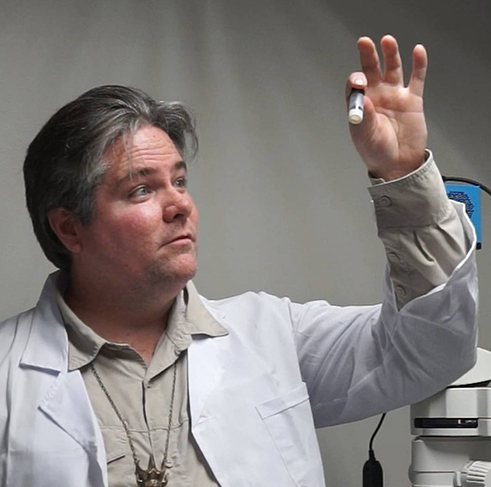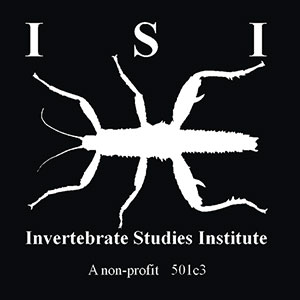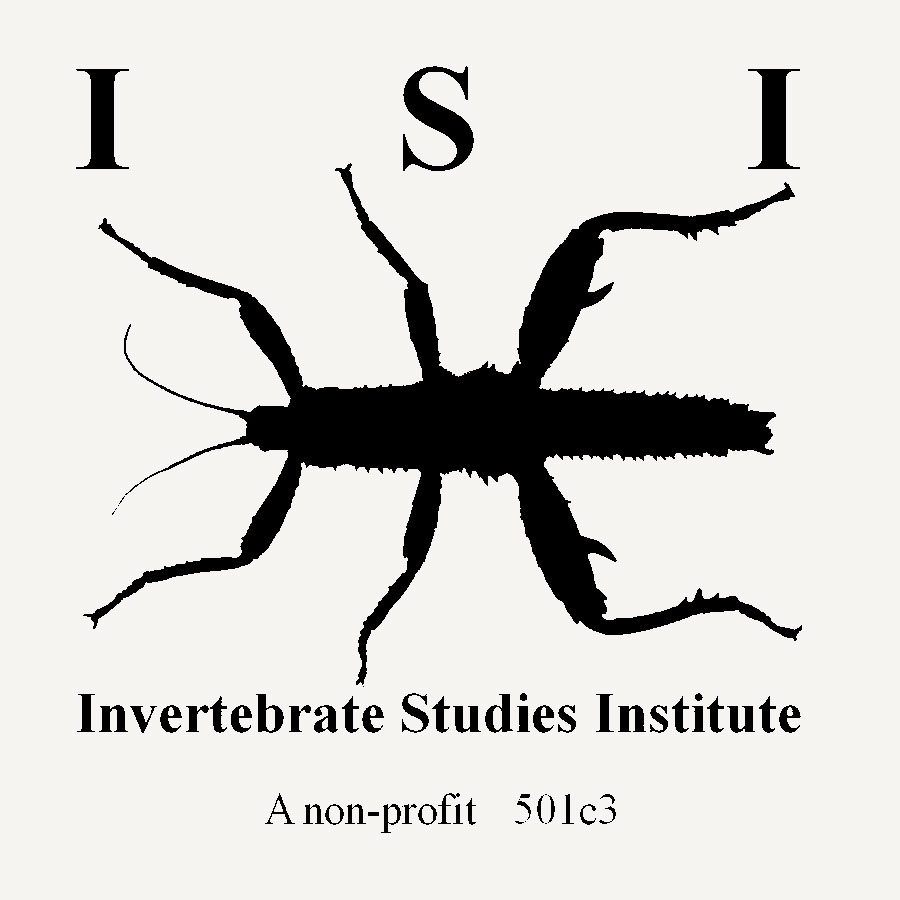WHY WE DO IT
Our Mission.
We want to study insects, spiders and other invertebrates for their intrinsic value, not how to kill them! Our organization inspires appreciation for the natural world and it’s CONSERVATION, not destroying nature as something that’s “in the way” or to be exploited to extinction. Biodiversity and invertebrates harbor valuable biochemical systems of which we have only scratched the surface. What’s more, invertebrates have barely been studied at all for potential drug compounds or other beneficial biochemical entities they harbor which will be beneficial to humans. ISI will study the genomes and chemistry of these creatures, the largest and most biodiverse group of organisms on earth by far, and demonstrate why it is critical that we preserve life on earth not only because it is the moral thing to do, but because it benefits us as well.

We execute our mission through:
Entertainment
An immersive experience learning about science and invertebrates in person in real-time. “Edutainment” / “Jurassic Park” of bugs! Critical for fundraising and revenue!
Research
Genomics, Biochemistry, Bioprospecting, Drug Discovery, Ecology, Husbandry.
Facility
A world-class invertebrate zoo (“Bug Zoo”), biodome and biotech research labs.
Events
USA Science and Engineering Festival, local science fairs, conferences.
Outreach
Public engagement through web site, social media, events, news media.
Conservation
Create content on ecological needs for invertebrates to survive, ecological research on invertebrates, purchase property for preservation and use for research.
ISI was founded by PhDs in Biomedical Science, Biochemistry, Molecular Biology and Entomology (hyperlink to “The Team”) with extensive experience and passion for field work and nature. Some organizations and institutions focus only on entertainment, or only on educational displays, or only on research. ISI believes that these are synergistic activities all centered around the organisms themselves. Thus, at the core of ISI is culturing vast numbers of invertebrate species and maximizing the impact of their value by both studying them for various research endeavors as well as displaying them for public education and inspiring appreciation. Our insect zoo will be by far the largest on earth and our Biodome and biotech facilities will be unique in the world and rivaled by no other organization working with invertebrates.
While there are zoos who display animals, botanical gardens who display plants, universities who conduct research and museums who display dead natural history specimens, there are no institutions who combine all of these under one roof. What’s more, none of these types of institutions truly do justice in displaying, researching and educating the public about the vast biological and biochemical diversity of insects or other invertebrates. Zoos tend to have only a handful of insects and scorpions on display, and possibly a tank with some marine invertebrates like starfish and anemones. However, with millions of species on earth, and with mass extinction of most of life on earth looming, there is an urgent need to display insect and invertebrate biodiversity to the public. There is an urgent need for facilities like ISI to display hundreds, THOUSANDS of invertebrates so people can see truly what their world is made of and what is being lost if things do not change.
Sadly almost all research focused on insects and other invertebrates in human history, aside from bees for honey and pollination, really has been negative. The mission is always “how can we kill these things? How can we just need to get rid of all but the bees and butterflies?” Our planet can exist that way. That’s not sustainable. That’s not right. It’s not ethical or moral to really drive any species to extinction. Plus they have a lot to offer. There’s a lot of positive things we can learn and been in ways we can benefit from insects. So since nearly the rest of the world is trying to kill them, ISI was founded to be different. ISI was founded to be the organization that discovers and publicizes all the positive things about them and that humans can get from them. We want to study insects, spiders and other invertebrates for their intrinsic value, not how to kill them!
Our organization inspires appreciation for the natural world and it’s CONSERVATION, not destroying nature as something that’s “in the way” or to be exploited to extinction. Biodiversity and invertebrates harbor valuable biochemical systems of which we have only scratched the surface. What’s more, invertebrates have barely been studied at all for potential drug compounds or other beneficial biochemical entities they harbor which will be beneficial to humans. ISI will study the genomes and chemistry of these creatures, the largest and most biodiverse group of organisms on earth by far, and demonstrate why it is critical that we preserve life on earth not only because it is the moral thing to do, but because it benefits us as well.
We focus on cutting edge research utilizing cutting edge biomedical and biochemical technologies to study the biochemistry behavior and various biological attributes of invertebrates, as well as their functional, the function in ecology and their importance to the world and publish and teach people about our research through our, our insect zoo and our educational activities, science fairs and things like that, that we’ve done that we’re doing so far.
ISI will bring cutting edge biomolecular and chemical research as well as biomedical research that can be derived from invertebrates to the general public without any kind of filters or without dumbing it down. So essentially we are researchers, but we’re also building an insect zoo and a biodome to bridge that divide between the public and research. Whereas a lot of other museums, zoos and institutions are at more of a lower level with their educational content. We feel like there’s really no reason why we can’t have a hardcore research Institute AND communicate all what we do to the public.
Invertebrates make up by far the largest and most diverse group of organisms on earth, yet sadly insect biodiversity is rapidly declining (Hallmann, et al., 2017; Jarvis, 2018; Vogel, 2017; IPBES. 2019). There are 1,000,000 named species, and estimates of 3,000,000-40,000,000 million species of insects on earth alone – and invertebrates include insects as well as other groups of animals such as millipedes, worms, spiders, crabs, snails, clams and many many more!
Class Insecta (insects) is the largest and most diverse group of organisms on Earth. Approximately 950,000 species of insects have been described, with estimates of 4,000,000 species yet to be described (Dossey, 2010; Dossey 2011), and some estimates even as high as 30,000,000. Insects are extremely important as a food resource in many parts of the world, they provide ecosystem services and other resources, and hold important biological blueprints for chemical compounds for future technology development (Dossey, 2010; Dossey et al., 2016). These animals utilize chemistry for nearly all of their biological and ecological process and adaptations, including communication, defense, protection from infection etc. Thus, insects are incredibly rich in chemical biodiversity (Burse and Boland, 2017; Dossey, 2010; Dossey, 2011), yet their chemistry and particularly their genomes and biosynthetic pathways have been extremely under-explored compared to other groups such as plants (Dossey, 2010). And, insects are declining (IPBES, 2019), making it important to learn from insects before it is too late. Research can also support conservation efforts to further inspire people to understand their value.
Recent horrifying studies demonstrate what biologists, and anyone with any sense, would know looking at Google Earth and traveling: mass extinction is real, happening and human-caused by destruction of natural habitats. We are losing our insect biodiversity rapidly due to habitat loss, climate change, massive amounts of pollution from plastics and other factors. These horrifying studies (Hallmann, et al., 2017; Jarvis, 2018; Vogel, 2017; IPBES. 2019) demonstrate what biologists and others know by looking at Google Earth images and traveling around our planet: potential mass extinction is real, is happening in real time, and is human-caused due to massive destruction of natural habitats. As an example of one of the major exacerbating factors, 70% of agricultural land, 30% of the land on earth, is used for livestock alone (Safina, 2011; Steinfeld et al., 2006; Flachowsky et al., 2017). With historic levels of biodiversity loss and an ever-increasing human population, it is ever more important to intensify research into the molecular and genomic biodiversity of the earth’s biosphere to both understand its capacity and garner greater appreciation by society. Even the number of birds in North America have declined by 60% (Zimmer, 2019; Rosenberg et al., 2019), and since many birds eat insects, the decline in insects, along with overall habitat destruction, is likely a major contributor. What’s more, insects are a very rich yet extremely under-explored source of valuable biological substances, including potential pharmaceutical lead compounds, antimicrobial peptides, industrial enzymes and others (Dossey 2010;, Dossey, 2011; Burse and Boland, 2017). Yet, very little bioprospecting from insects has been done in general, and phasmids are one of the least studied insect groups in general. For example, the first animal antimicrobial peptides (cecropins) discovered were from the Cecropia moth (Hyalophora cecropia) native to the United States including Oklahoma (Dossey, 2010). Insects do not possess an adaptive cell-based immune system as in humans and other vertebrates. They largely rely on chemistry (such as antimocrobial peptides) to defend against microbial pathogens and to adapt to their environments (Dossey, 2010; Dossey, 2011). Nowadays, we can utilize bioinformatics-driven bioprospecting and data mining from high quality reference genomes assembled to chromosome level to identify valuable peptides as well as potential industrial enzymes and other valuable bioproducts (Hicks and Prather, 2014) Recent developments in genome sequence technologies have made sequencing large numbers of species accessible and economically viable for organizations like ours (Lewin et al., 2018). Thus, sequencing the biodiversity of life on earth, especially that of insects, to generate high reference quality genomes assembled to chromosomal level is both feasible and more important than ever. Additionally, with the abundance of biological knowledge to date along with modern analytical chemistry, bioinformatics and computing tools, we can now glean conclusive information on tangible products from this biodiversity.

Invertebrate Studies Institute’s mission is to inspire appreciation for and conservation of the natural world through invertebrate focused research, education, outreach, entertainment activities.
Invertebrate Studies Institute, Inc. (ISI) is a non-profit 501c3 organization.
Our Offices
Invertebrate Studies Institute, Inc.
University Research Park
755 Research Parkway, Suite 552
Oklahoma City, OK 73130
Phone: 352-281-3643
Email: support@isibugs.org
Support ISI Today
ISI inspires appreciation for science, invertebrates and the natural world.
